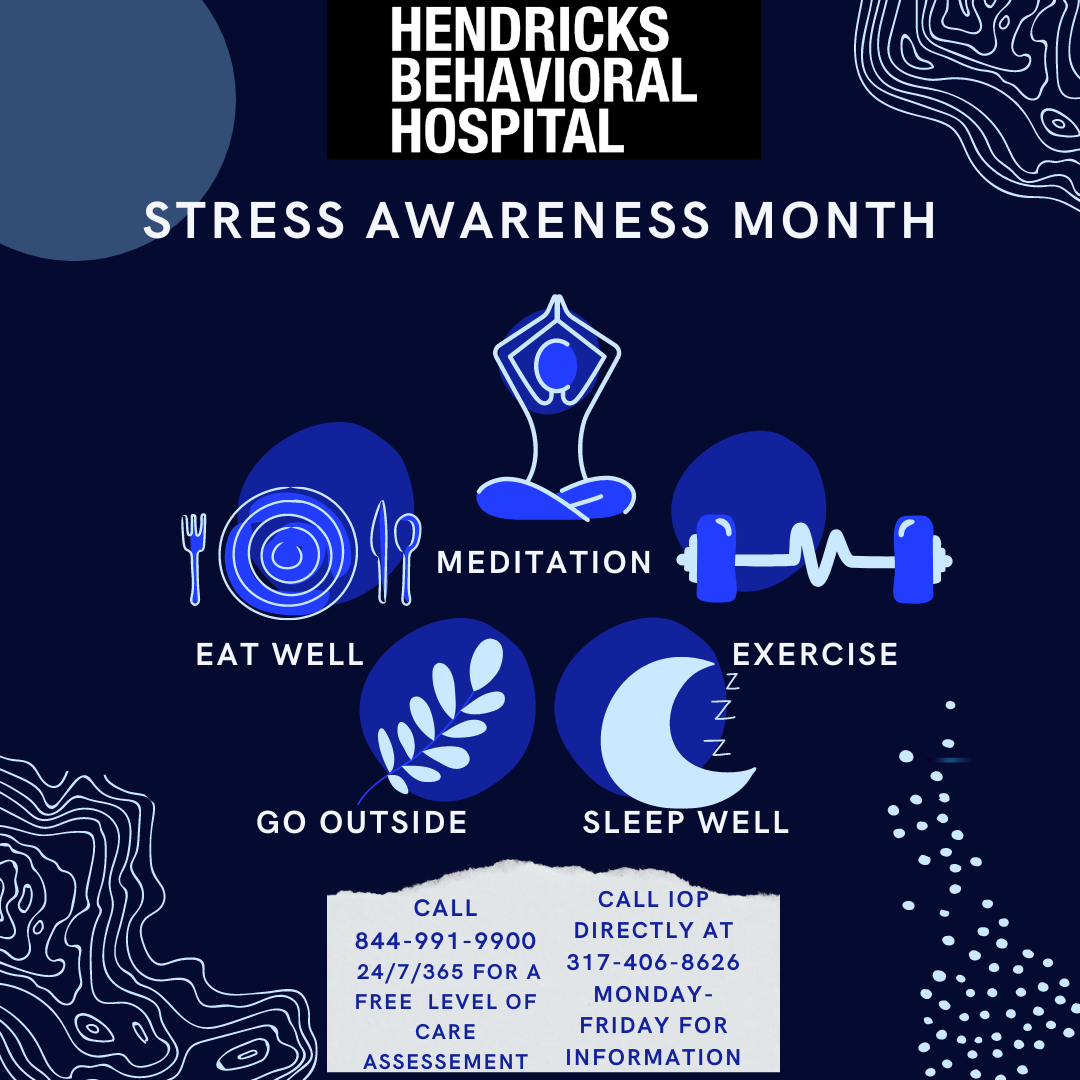
Did you know April is Stress Awareness Month?
Let’s talk about stress! It’s something we all experience, but it’s important to recognize its impact on our mental and physical well-being. This month, let’s raise awareness and support each other in managing stress better. Whether it’s through mindfulness, exercise, hobbies, or seeking professional help, remember you’re not alone. Hendricks Behavioral Hospital is here to help you navigate stress and strive for a healthier, happier life.
Stress can affect us in numerous ways, both mentally and physically. Here are some of the effects of stress:
- Mental Health: Stress can lead to anxiety, depression, irritability, and mood swings. Prolonged stress can also contribute to burnout and decrease our ability to cope with everyday challenges.
- Cognitive Function: Chronic stress can impair cognitive function, affecting memory, concentration, and decision-making abilities. It can also make it harder to learn new information or solve problems effectively.
- Physical Health: Stress can manifest physically, leading to symptoms such as headaches, muscle tension, fatigue, and digestive issues. It can weaken the immune system, making us more susceptible to illnesses and infections.
- Cardiovascular Health: Chronic stress is linked to an increased risk of heart disease, high blood pressure, and other cardiovascular issues. It can also contribute to the development of unhealthy habits such as overeating, smoking, or excessive alcohol consumption, further impacting heart health.
- Sleep: Stress often disrupts sleep patterns, leading to insomnia or poor sleep quality. Lack of sleep can exacerbate stress levels and create a vicious cycle that negatively impacts overall well-being.
- Relationships: Stress can strain relationships with friends, family, and colleagues. It may lead to conflicts, communication breakdowns, or social withdrawal, reducing our support network when we need it most.
- Behavioral Changes: People under stress may exhibit changes in behavior such as increased aggression, withdrawal from social activities, or engaging in unhealthy coping mechanisms like substance abuse.
- Work Performance: Stress can affect productivity, creativity, and job satisfaction. It may lead to absenteeism, presenteeism (being physically present but not fully functioning), and decreased job performance.
Overall, recognizing and managing stress is crucial for maintaining both mental and physical well-being. Strategies such as relaxation techniques, exercise, social support, time management, and seeking professional help when needed can all help mitigate the negative effects of stress.
Hendricks Behavioral Hospital is always open 24/7/365 for no-cost level of care assessments. Please call our Intake Department at 844-991-9900 for more information or with any questions, or call our Intensive Outpatient Department, Monday-Friday, directly at 317-406-8626.
